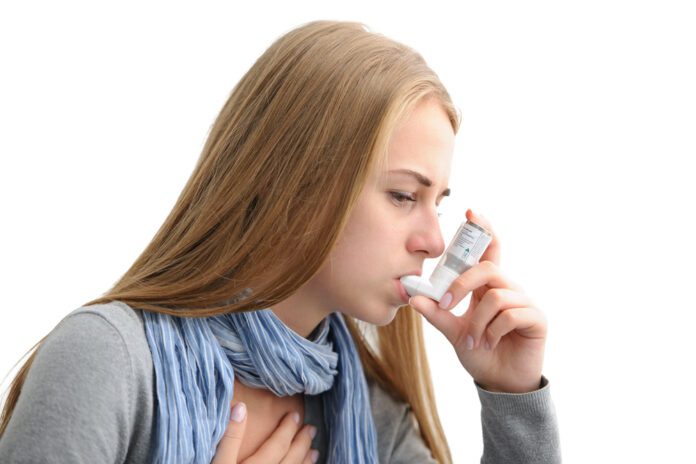Overview
Asthma is a chronic disease that affects the airways. The airways are tubes that carry air in and out of the lungs. If you have asthma, the inside walls of the airways become sore and swollen. This can make breathing difficult and trigger coughing, a whistling sound (wheezing) when you breathe out, and shortness of breath. It is one of the most common long-term diseases of children, but adults can have asthma, too. Asthma is a disease that affects the lungs.
If you have asthma, you have it all the time, but you will have asthma attacks only when something bothers your lungs.
Asthma affects people of all ages and often starts during childhood. You may wheeze, cough, or feel tightness in the chest. These symptoms can range from mild to severe and can happen every day or only once in a while. Certain things can set off or worsen asthma symptoms, such as cold air. These are called asthma triggers. When symptoms get worse, it is called an asthma attack.
Asthma can’t be cured, but its symptoms can be controlled.
Cause
Asthma is caused by swelling (inflammation) in the airways. When an asthma attack occurs, the lining of the air passages swells and the muscles surrounding the airways become tight. This reduces the amount of air that can pass through the airway.
Asthma symptoms can be caused by breathing in substances called allergens or triggers, or by other causes.
Common asthma triggers include:
• Animals (pet hair or dander)
• Dust mites
• Certain medicines (aspirin and other NSAIDS)
• Changes in weather (most often cold weather)
• Chemicals in the air or in food
• Physical activity
• Mold
• Pollen
• Respiratory infections, such as the common cold
• Strong emotions (stress)
• Tobacco smoke
Substances in some workplaces can also trigger asthma symptoms, leading to occupational asthma. The most common triggers are wood dust, grain dust, animal dander, fungi, or chemicals.
Many people with asthma have a personal or family history of allergies, such as hay fever (allergic rhinitis) or eczema. Others have no history of allergies.
Symptoms
Asthma symptoms vary from person to person. You may have infrequent asthma attacks, have symptoms only at certain times — such as when exercising — or have symptoms all the time.
Asthma signs and symptoms include:
•Wheezing
•Coughing, especially early in the morning or at night
•Chest tightness
•Shortness of breath
Treatment
Asthma is treated with two kinds of medicines: quick-relief medicines to stop asthma symptoms and long-term control medicines to prevent symptoms.
•breathing exercises
•quick-acting treatments
•long-term asthma control medications
Asthma is usually treated by using an inhaler, a small device that lets you breathe in medicines.
Other
Triggers
Common asthma triggers include:
•allergies (to house dust mites, animal fur or pollen, for example)
•smoke, pollution, and cold air
•exercise
•infections like colds or flu
Identifying and avoiding asthma triggers can help keep the symptoms under control.
Although asthma can normally be kept under control, it’s still a serious condition that can cause several problems.
This is why it’s important to follow a treatment plan and not ignore the symptoms if they’re getting worse.
Source



